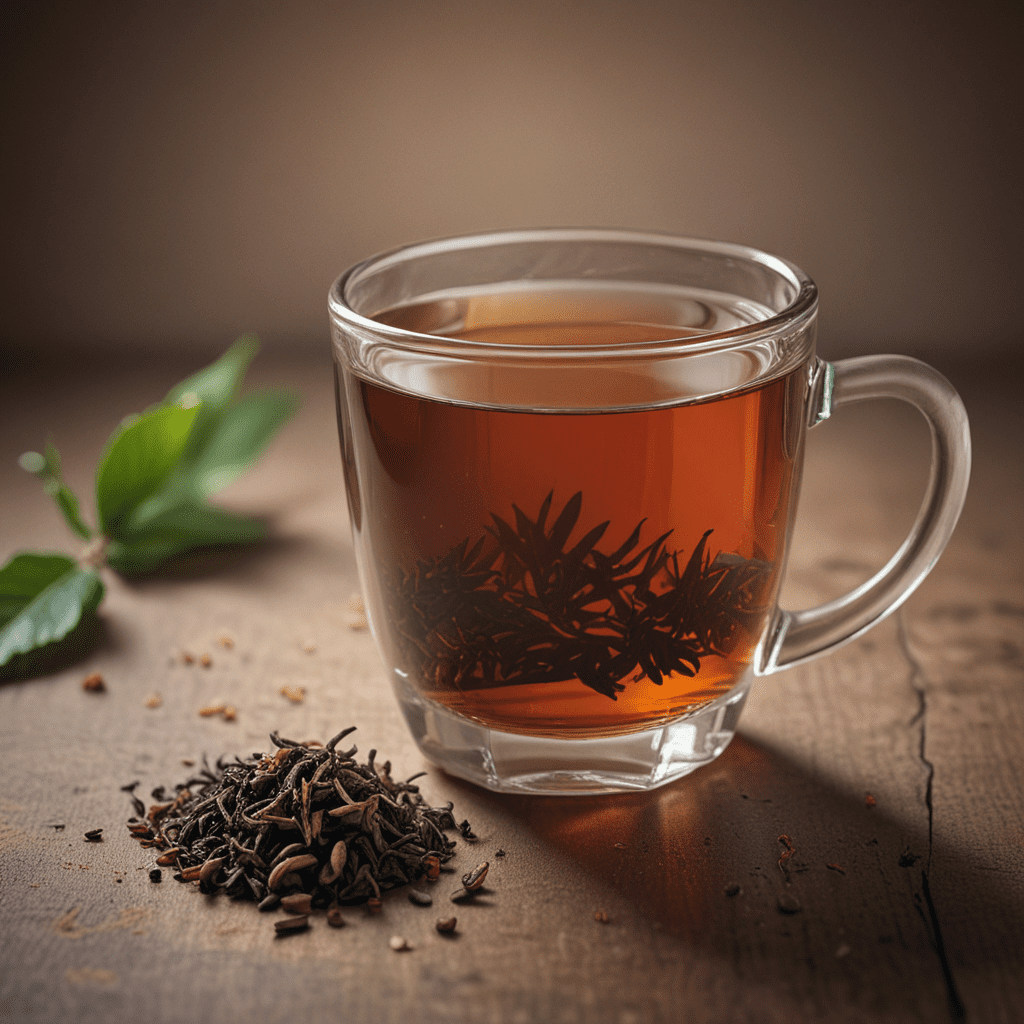Assam Tea: The Perfect Morning Brew
I. Introduction
Assam tea, renowned for its rich aroma and robust flavor, serves as the ideal companion for a perfect morning start. Steeped in history and tradition, this aromatic beverage originates from the verdant plains of Assam, India, and has captivated tea enthusiasts worldwide with its distinctive characteristics.
II. History and Origin
The discovery of Assam tea in the 1800s marked a pivotal moment in tea cultivation. British explorers stumbled upon indigenous tea plants flourishing in the region's fertile soil and abundant rainfall. Recognizing its commercial potential, they established tea plantations, transforming Assam into a major tea-producing hub.
III. Cultivation and Production
The unique geography of the Assam region plays a crucial role in shaping the tea's distinctive qualities. Nestled in the Brahmaputra Valley, the warm and humid climate provides optimal growing conditions for Assam tea bushes. Skilled tea pluckers harvest the tender tea leaves, which undergo a meticulous oxidation and fermentation process to develop their robust and full-bodied flavor.
IV. Aroma and Flavor Profile
Assam tea boasts a distinctive malty and full-bodied note, a result of the region's unique growing conditions. Its robust and earthy characteristics lend it a rich and satisfying taste, making it a favorite among tea connoisseurs. The tea's deep amber color adds to its visual appeal, hinting at the intense flavor that awaits.
V. Health Benefits
Beyond its delightful taste, Assam tea offers a range of health benefits. Rich in antioxidants and flavonoids, it has been linked to improved heart health and reduced inflammation. The tea's caffeine content provides a gentle boost, making it a refreshing and invigorating morning beverage.
VI. Brewing Techniques
Assam tea can be brewed using loose-leaf or teabag methods. Loose-leaf brewing allows for greater control over the strength and flavor of the tea. Use 2-3 grams of loose-leaf tea per 8 ounces of water. Heat the water to a rolling boil and pour it over the tea leaves. Steep the tea for 3-5 minutes, depending on desired strength.
VII. Pairing and Accompaniments
Assam tea pairs perfectly with breakfast foods, such as toast, scones, and pastries. The tea's bold flavor complements the richness of these dishes. Milk and sugar can be added to taste, but many prefer to enjoy Assam tea black to fully appreciate its robust character.
VIII. Cultural Significance
Assam tea plays a central role in Indian culture. It is a staple in households throughout the country, where it is consumed both as a morning beverage and as a social drink during gatherings and celebrations. Assam tea is also an important part of hospitality, offered to guests as a gesture of warmth and welcome.
IX. Quality and Grading
Assam tea is graded based on factors such as leaf size, appearance, and taste. The highest grade, known as OP (Orange Pekoe), consists of large, whole leaves. Other grades include BOP (Broken Orange Pekoe), which has smaller, broken leaves, and CTC (Cut, Tear, Curl), which is used in teabags.
X. Conclusion
Assam tea is a unique and flavorful beverage that has captured the hearts of tea lovers worldwide. Its robust taste, health benefits, and cultural significance make it the ideal choice for a perfect morning start. Whether enjoyed hot or iced, Assam tea is sure to delight and invigorate, setting the tone for a productive and fulfilling day.
Frequently Asked Questions
Q: What is the difference between Assam tea and other black teas?
A: Assam tea is known for its distinctive malty and full-bodied flavor, which is a result of its unique growing conditions in the Assam region of India.
Q: How can I brew the perfect cup of Assam tea?
A: For the best results, use loose-leaf tea and heat the water to a rolling boil. Steep the tea for 3-5 minutes, depending on desired strength.
Q: Can I add milk to Assam tea?
A: While many prefer to enjoy Assam tea black, milk can be added to taste. However, milk may alter the tea's robust flavor.
Q: Is Assam tea beneficial for health?
A: Yes, Assam tea is rich in antioxidants and flavonoids, which may provide health benefits such as improved heart health and reduced inflammation.


